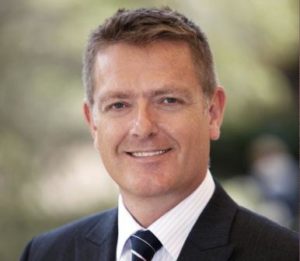
Flinders Vice-Chancellor Professor Colin Stirling says he has been pleased by the level and tenor of the debate within Flinders regarding the possibility of collaboration with the Copenhagen Consensus Centre (CCC).
“As I have previously indicated, discussions have been held that have led to a group of colleagues considering a bid to the Department of Education for research funds to pursue a collaborative endeavour. No such bid has yet been made and the nature and structure of any such bid has yet to be decided,” Professor Stirling said.
“In the meantime, I have received a number of emails and spoken with many staff and students about the matter. I also attended the recent ‘Bjorn Free’ rally on campus where I listened to the debate and also took the opportunity to chat to a number of those present afterwards.
“Of the communications received, some have been highly supportive of a collaborative link with the CCC, but many more have expressed concerns on a range of issues. I have read all of these, and have listened closely in conversations with staff and students, and it is very clear to me that the concerns being expressed are genuine and heartfelt.
“Some of the concerns raised resonate with me and I intend to pass these on to those colleagues considering making a proposal to the Department.
“However, there are two recurring themes in the commentary with which I cannot agree.
“The first suggests that I, as Vice-Chancellor, should prevent Flinders academics from bidding to the Federal Government for research funds to pursue a research topic within their field of expertise. This is something that I should not and will not do. Were this precedent to be set then where would it lead, and what research topic would be next on the list to be disavowed?
“The second is that I should prohibit academic colleagues from any form of collaboration with Bjorn Lomborg. Once again, this is something that I cannot, should not and will not do. The world, and indeed academia, is replete with outspoken contrarians and controversial figures. We can each form our own views of such individuals but must respect the rights of our colleagues to decide with whom they choose to collaborate. So, while preventing colleagues from collaborating with Bjorn Lomborg might prove popular with some, it would be wrong. Which other controversial thinker would be next to be added to the prohibited list? This is not how the academy works. The role of the academy is not to suppress or evade controversial issues; rather we must tackle them directly through critical analysis, rigorous debate and thought leadership.
“These issues cut to the heart of the principle of academic freedom that is fundamental to the very nature of the academy and to what it means to be a University.
“Indeed, this principle is so fundamental that it cannot be compromised. Should our colleagues decide to bid to the Department then I will defend their right to do so.
“I will, of course, counsel them on the issues raised through the consultation, in an effort to improve the structure of any future proposal. One important area for me is that any bid ought to focus on research to be done at Flinders University by Flinders academics. The integrity of such research would then be beyond reproach, thereby satisfying the single most important concern raised during the consultation. Indeed I am confident that Flinders academics making any sort of external funding bid for research funding would insist on the same academic independence, rigour and integrity that characterises our institution.
“Some have suggested that considering an academic collaboration with the CCC is a risk to Flinders’ reputation. Whatever risk we might face from a successful bid, I believe there would be a greater risk to our reputation if we were to abandon the tenets of academic freedom.
“Given the level of interest in this issue, I undertake to inform the academic community should an application to the Department be made.”

